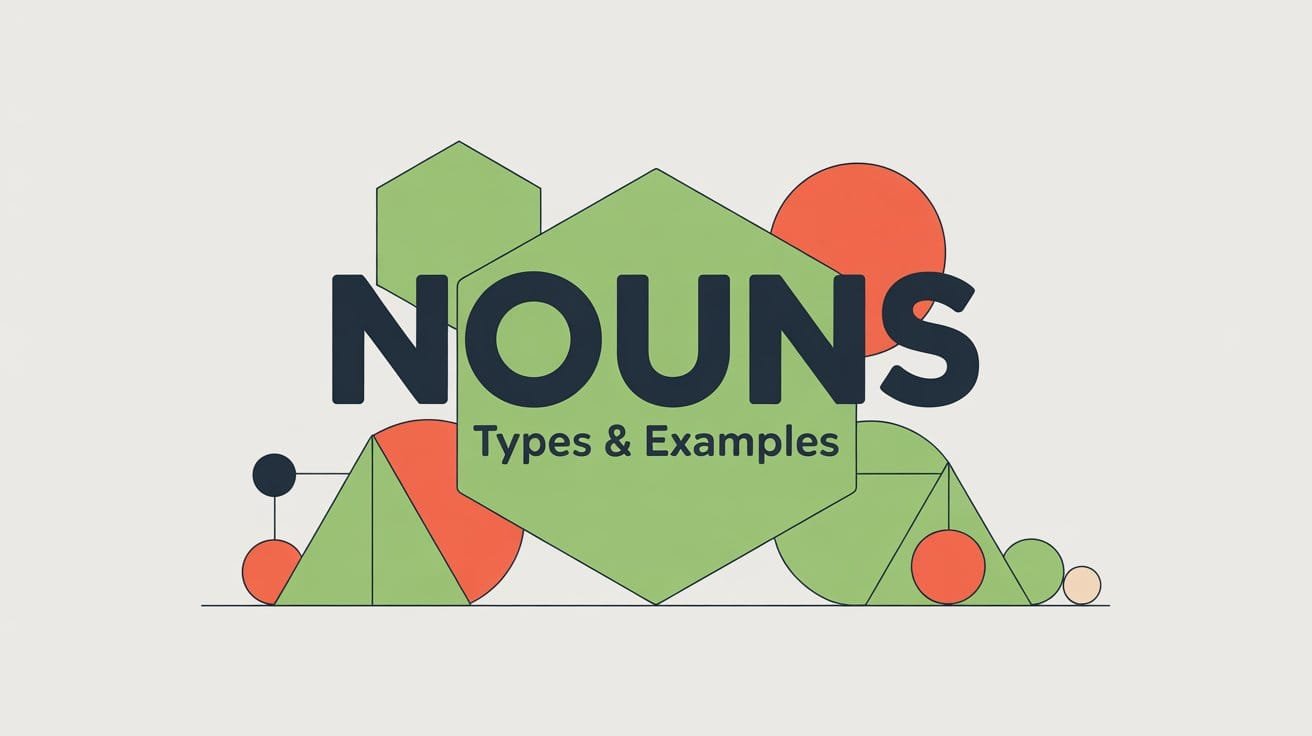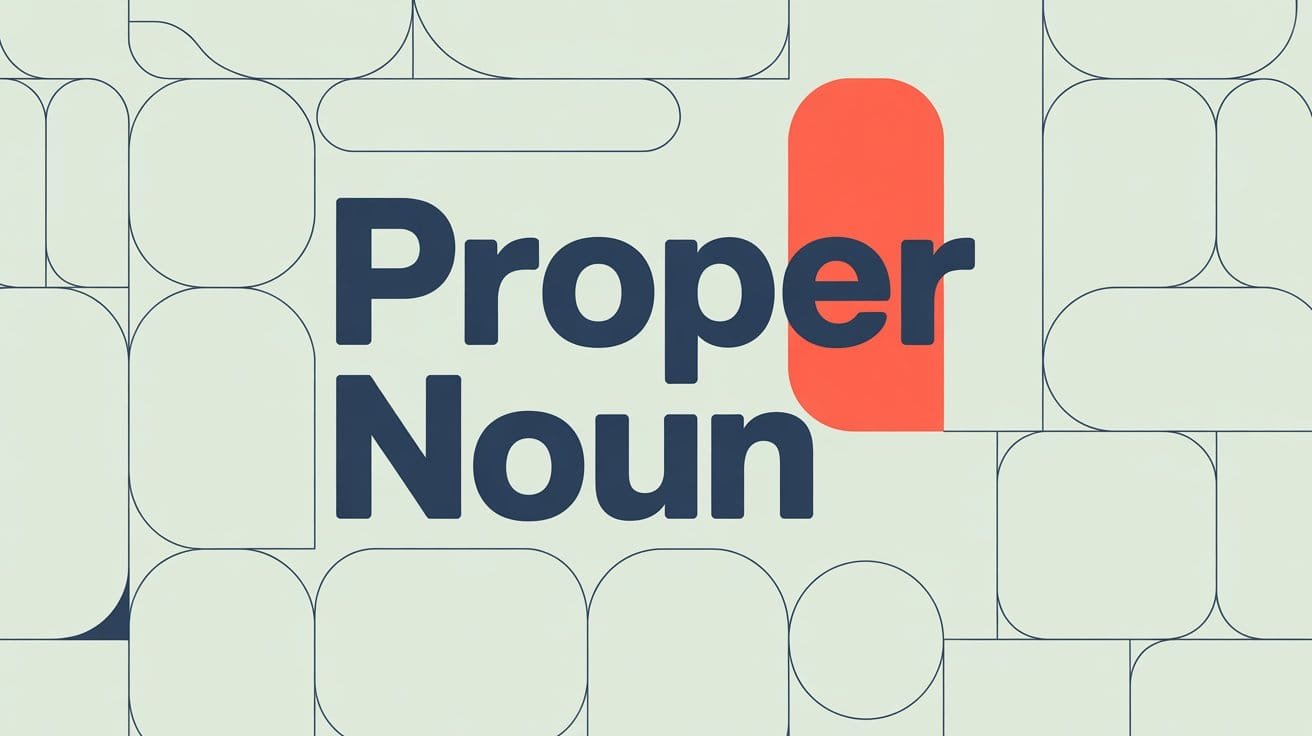A common noun names a general person, place, thing, or idea rather than a specific name. Words like teacher, city, device, and happiness are common nouns because they refer to categories, not one exact example.
Common nouns appear constantly in everyday writing. They help you talk about people, places, and things in a broad way without naming anyone or anything in particular. Because they describe general groups, common nouns are usually written in lowercase, unless they begin a sentence.
What Is a Common Noun?
A common noun is a noun that refers to a general person, place, thing, or idea. It does not name anything specific. Instead, it represents a whole group or category.
For example:
- teacher refers to anyone with that role
- city refers to any city
- book refers to any book
These words stay general. They do not point to one exact name.
Common nouns are different from proper nouns in this way. A proper noun identifies a specific name, such as Ms. Carter, Paris, or The New York Times. A common noun stays broad and flexible, which is why it is usually written in lowercase.
You use common nouns when the exact identity does not matter or when you are speaking in general terms rather than naming something specific.
Common Noun Examples
- People: doctor, student, friend, artist, child
- Places: city, park, restaurant, country, office
- Things: pen, phone, car, table, book
- Ideas or Feelings: freedom, happiness, anger, strength, love
Why Common Nouns Are Usually Not Capitalized
Common nouns are usually not capitalized because they describe categories, not specific names. They tell you what something is, not which exact one it is.
Capital letters are reserved for names that identify a particular person, place, or organization. Since common nouns remain general, they stay lowercase in most situations.
Compare how meaning changes:
- The library closes at 8 p.m.
- The team met at the Library of Congress.
In the first sentence, library refers to any library, so it is lowercase. In the second, Library of Congress names a specific institution, which is why it is capitalized.
Capitalization can also change based on sentence position. A common noun is capitalized when it appears at the beginning of a sentence, even though it remains a common noun.
For example:
- Books help improve focus and memory.
Here, books is still a common noun. It is capitalized only because it starts the sentence, not because it names something specific.
Types of Common Nouns (With Examples)
Common nouns can be grouped based on what they refer to. Each type still names something general, not a specific name.
Common Nouns for People
These common nouns describe roles, jobs, or relationships rather than named individuals.
Examples:
- The manager reviewed the schedule before approving it.
- Her neighbor offered help during the move.
- Every student must submit the form by Friday.
Common Nouns for Places
These nouns refer to general locations or environments, not named places.
Examples:
- They waited at the station for nearly an hour.
- The park fills up quickly on warm evenings.
- She found a quiet café near her office.
Common Nouns for Things
These common nouns name objects, tools, or materials used in everyday life.
Examples:
- He replaced the battery in his laptop.
- The chair near the window is broken.
- She packed her camera for the trip.
Common Nouns for Ideas and Concepts
Some common nouns refer to feelings, qualities, or states that cannot be physically touched.
Examples:
- Patience is important when learning a new skill.
- The team showed great confidence during the presentation.
- His decision was driven by curiosity, not pressure.
Common Nouns vs Proper Nouns
Common nouns and proper nouns differ mainly in how specific they are.
A common noun names a general person, place, thing, or idea.
A proper noun names one specific person, place, organization, or thing.
This difference affects how the word is written.
Compare these examples:
- She works at a company in the technology sector.
- She works at Samsung in the technology sector.
- The school announced a holiday.
- Greenwood High School announced a holiday.
In each pair, the first sentence uses a common noun because the reference is general. The second sentence uses a proper noun because it names something specific, which is why it is capitalized.
| Common Noun | Proper Noun |
|---|---|
| city | Tokyo |
| river | Nile |
| teacher | Mr. Sharma |
| book | To Kill a Mockingbird |
| holiday | Christmas |
When a Proper Noun Is Used as a Common Noun
Sometimes a word that started as a proper noun is used so widely that it begins to function as a common noun. When this happens, the word no longer refers to one specific brand, person, or place. Instead, it describes a general type.
This shift usually happens through everyday use.
Examples:
- He searched the issue on google before the meeting.
- She asked for a xerox of the document.
In these sentences, Google and Xerox are not pointing to the companies themselves. They are being used as general verbs or nouns, which is why they appear in lowercase.
The same pattern appears with objects or products:
- The mechanic grabbed a spanner, not a specific brand.
- She stored the leftovers in a thermos.
When a proper noun loses its connection to a specific name and becomes a general term, it is treated as a common noun and follows lowercase capitalization rules.
FAQs About Common Nouns
Is “school” a common noun?
Yes. School is a common noun because it refers to a general type of place. If you’re talking about a specific school by name, like Greenwood High, that’s a proper noun.
Is “water” a common noun?
Yes. Water is a common noun and also an uncountable noun. It names a general substance rather than something specific.
Are common nouns ever capitalized?
Yes, but only when it appears at the beginning of a sentence.
Are days and months common nouns?
No. Days of the week and months of the year are proper nouns, so they are always capitalized.
Words like day or month, when used generally, are common nouns.
Are materials common nouns?
Yes. Names of materials such as wood, steel, plastic, and cotton are common nouns because they refer to substances in general, not specific names.
Is a common noun always one word?
No. A common noun can be one word or a short phrase, as long as it refers to something general rather than a specific name. Example: customer service department.



